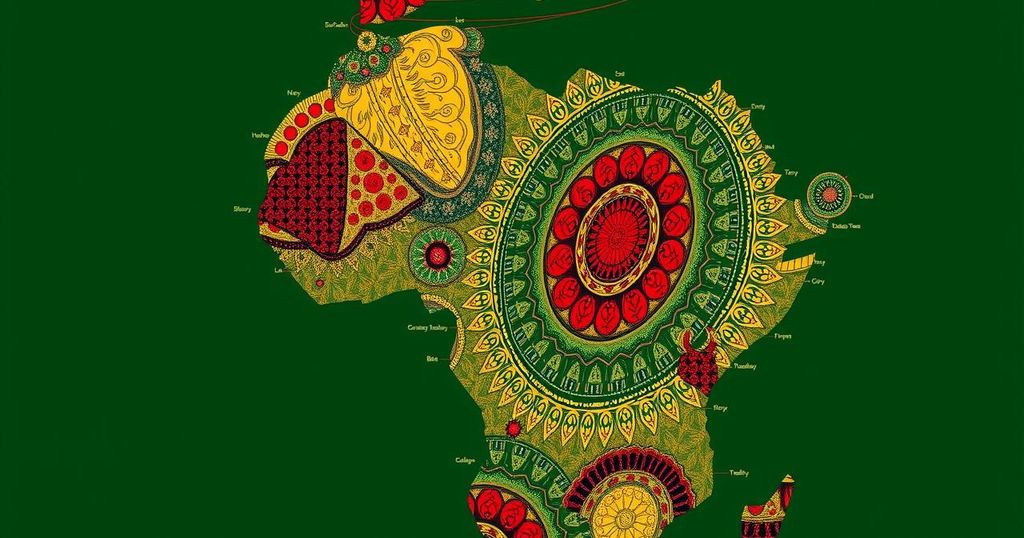This article explores how the experiences of divided African democracies can offer valuable lessons to the United States, particularly concerning the prevention of electoral violence. It examines the impact of losing parties’ acceptance of election results, the importance of fair electoral processes, and the role of civil society in promoting stability. By highlighting case studies from Ethiopia and Gambia, the article emphasizes the need for inclusive governance and trust within the electoral framework to reduce tensions and promote democratic integrity.
The lessons from divided African democracies highlight critical insights for the United States regarding electoral violence and the preservation of democratic integrity. Elections in numerous regions of Africa are often fraught with anxiety and potential violence, underscored by the sentiment articulated by former Nigerian President Olusegun Obasanjo, who referred to them as “do-or-die affairs.” The propensity for elections to devolve into violence hinges significantly on the acceptance of electoral defeat by the losing parties, which is predicated upon their faith in the democratic process and the perceived fairness of the electoral system. A notable example is Ethiopia’s tumultuous political landscape leading to the essence of electoral practices. In the 2020 Ethiopian elections, alleged government actions to suppress opposition parties culminated in an erosion of trust and eventual boycotts of the elections by significant opposition figures. This culmination of distrust and a pivot towards armed conflict underscores how systemic issues, such as ethnic rivalries and poorly defined electoral frameworks, can exacerbate political competition, turning elections from mechanisms of governance into battlegrounds. Moreover, the Gambia’s experience illustrates that institutional measures, such as codes of conduct for candidates and the involvement of civil society, may mitigate tensions and violence. The success of such measures in fostering a stable political environment contrasts sharply with Nigeria’s recent electoral experiences, where the absence of similar frameworks contributed to skepticism and lower voter engagement. Additionally, the long-term integrity of electoral systems relies on fostering a political culture supportive of fair play and mutual respect among competitors. This necessitates developing systems that endorse inclusivity and protect minority rights, moving away from winner-takes-all politics that breed desperation and disorder. Ultimately, the foundations of a stable democracy rest on the integrity of its electoral processes and the overarching political institution. Acknowledging historical grievances and promoting inclusive governance are paramount to achieving a democratic environment that discourages violence rather than incentivizing it. Thus, understanding and learning from the complexities of electoral dynamics within African democracies can provide vital insights for the United States as it navigates its own challenges in a polarized political landscape.
The discussion around the dynamics of electoral practices in African democracies provides insightful perspectives on the prevention of electoral violence and the maintenance of democratic norms. Many African nations experience significant electoral strife, with elections often serving as flashpoints for violence, as seen in Ethiopia and Nigeria. The consent of losing parties and their willingness to accept election results are crucial components influencing the possibility of post-election violence. These dynamics underscore broader cultural and systemic factors, including ethnic rivalries and political institutions, that can significantly undermine the legitimacy of electoral outcomes and fuel conflict.
In conclusion, the experiences drawn from divided African democracies underline the paramount importance of trust in electoral processes and the necessity of inclusive political systems. The intersection of historical grievances, identity politics, and the commitment to fair electoral practices are essential considerations for preventing electoral violence. These lessons not only apply within the context of Africa but are equally relevant for ensuring the integrity of electoral processes in the United States. Engendering a political culture that prioritizes fair competition, mutual respect, and the protection of minority rights is crucial for fostering stability and confidence in democratic governance.
Original Source: foreignpolicy.com






